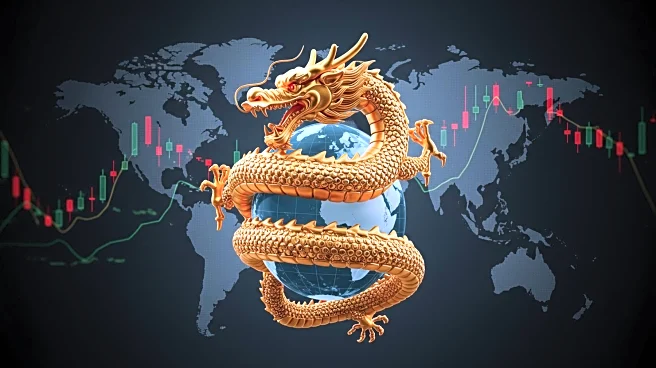What's Happening?
China's economy exhibited signs of deceleration in July, as indicated by a slowdown in factory output and retail sales, alongside a decline in housing prices. The economic challenges are compounded by ongoing uncertainty regarding tariffs on exports to the United States, despite a temporary pause in tariff hikes initiated by President Trump. While China's exports surged by 7.2% year-on-year in July, the increase is partly attributed to businesses capitalizing on the trade truce. However, manufacturers have reduced investments and production, awaiting further developments. Additionally, China has been redirecting exports to other regions to mitigate the impact of reduced U.S. business. The property market continues to struggle, with significant declines in property investments and housing prices, exacerbating the economic slowdown.
Why It's Important?
The slowdown in China's economy has significant implications for global markets, particularly the United States, which is a major trading partner. The ongoing trade tensions and tariff uncertainties could affect U.S. businesses reliant on Chinese imports and exports. The weak property market in China, a key driver of its economic growth, could further dampen consumer spending, impacting global supply chains and demand for U.S. goods. The economic challenges in China may also influence U.S. monetary policy and trade strategies, as policymakers assess the potential ripple effects on the U.S. economy.
What's Next?
As China navigates these economic challenges, the focus will likely be on negotiating a broader trade agreement with the United States to stabilize trade relations. The Chinese government may also implement measures to stimulate the property market and boost consumer spending. U.S. businesses and policymakers will be closely monitoring these developments, as any shifts in China's economic policies could have direct consequences for U.S. trade and economic growth.










